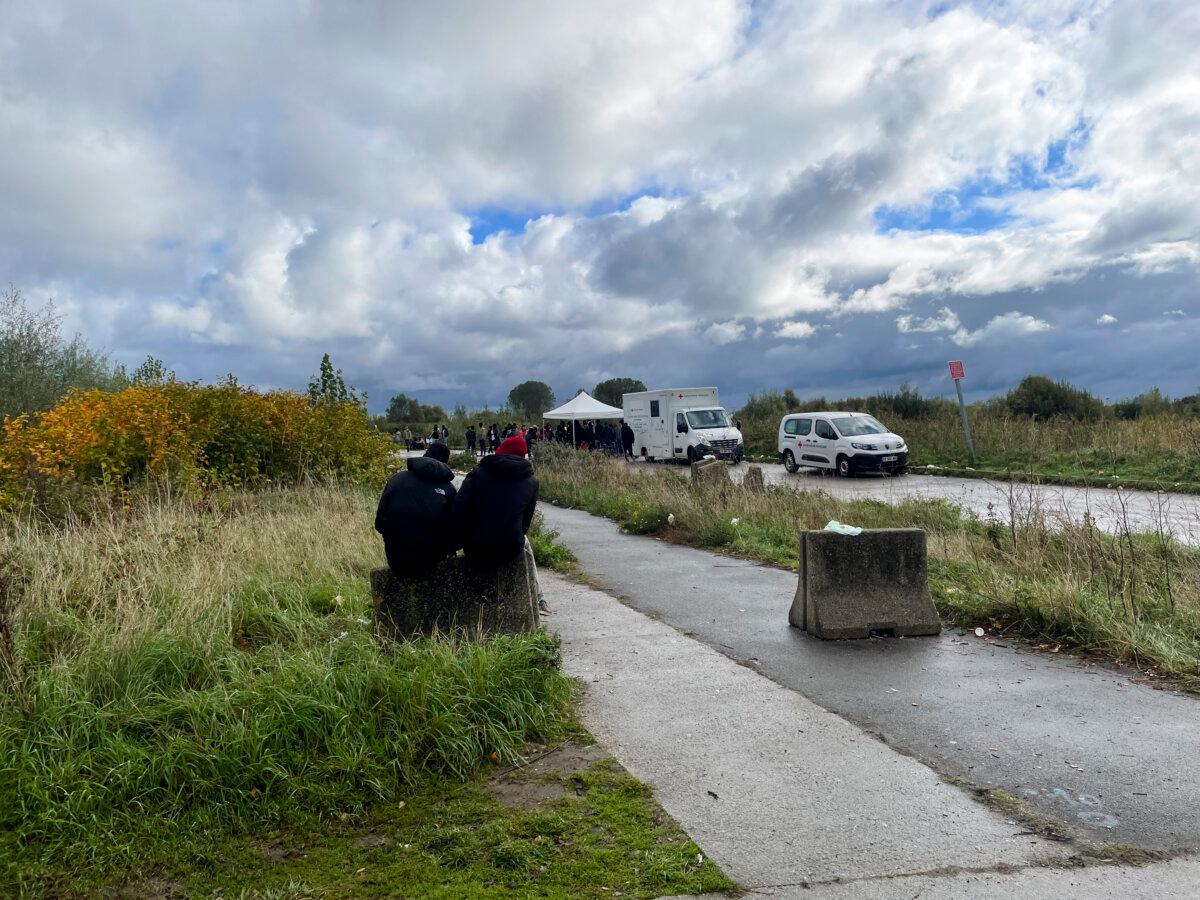By Owen Evans
With the public appetite waning for accommodating new immigrant arrivals in their communities, British authorities are looking at disused military barracks as an alternative to costly hotel rooms.
The use of two sites was announced Oct. 28, and UK Minister of Defense Luke Pollard told Good Morning Britain the government is investigating how it can bring similar sites “online shortly,” in what he called a “whole of government effort” to shut down so-called asylum hotels.
The UK Labour government is reeling from the sheer numbers of immigrants building up in the Calais bottleneck, where thousands are waiting to illegally cross the Channel. The new “one in, one out” deal with France has so far removed only a small number of people.
On Oct. 31, the UK government confirmed that asylum seekers are due to be housed in the Cameron Barracks in Inverness and the Crowborough army training camp in East Sussex.
The Ministry of Defense (MOD) is currently “looking at whether military bases can be effectively” to house asylum seekers, Pollard told Good Morning Britain. “The bases that are being discussed in the media at the moment are sites that we feel could be used in support of the Home Office objective, but if that works, then we can look at how else the MOD can stand up additional sites in support of this objective.”
‘We Can’t Send Them Back’
Between 2018 and 2024, citizens of six countries—Iran, Afghanistan, Iraq, Albania, Syria, and Eritrea—made up 70 percent of people crossing the English Channel in small boats, according to a July report from Oxford University’s Migration Observatory.
According to the UK’s September asylum data, by the end of June, about 168,000 people had arrived in the UK via small boats since 2018, using a route that was almost never used before that date.
Tony Smith, former Director General of the UK Border Force, said the government has nowhere to put the people arriving by small boat.
“The problem is that the numbers coming in on the boats, there’s very few of them being detained at Manston because we can’t send them back to France,” he told The Epoch Times.
Manston Immigration Centre is a Home Office processing center in Kent.

Smith said that the UK has only around 2,300 immigration-detention beds, covering both illegal entrants and foreign national offenders—those convicted of crimes without evidence of British citizenship.
As a result, he said, “the vast majority” of small-boat arrivals are released on “immigration bail.”
That means new arrivals are asked whether they have family or friends who can house them. If they do, they are given temporary admission and told to report later for an interview.
If they declare themselves destitute, however, the state becomes legally responsible for finding accommodation.
Smith, who spent 40 years with the Home Office tackling organized immigration crime and human smuggling, believes that deterrence works only if arrivals are detained and removed.
Asylum Hotels
Hotel use was originally intended to be a stopgap measure, Smith said, but it has exploded. By the end of June, more than 30,000 migrants were housed in hotels, according to government figures.
“We ran out of asylum accommodation across the country. There weren’t enough. That’s when the hotel thing kicked off,” Smith said.
The Home Affairs Committee in a recent report said that the use of hotels was intended to be a short-term response to the “pressures of the pandemic but has become an enduring part of the asylum accommodation system as demand for accommodation has continued to outstrip supply.”
The government has committed to reducing the cost of the asylum system and ending the use of hotels by 2029. In 2024–25, the Home Office spent £2.1 billion (about $2.4 billion) on hotels. It expects to spend £15.3 billion over the ten-year term.
At the program’s peak in 2023, more than 400 hotels were used for this purpose.
The problem, he added, is local resistance.
“Whenever they find somewhere like that, the local MP and the local council object; ‘NIMBY,’ ‘not in my backyard,’ ‘I don’t want a load of asylum seekers living in my backyard, thank you very much, they’re not coming here,’” he said.

For example, Green Party deputy leader Rachel Millward is leading opposition to the housing of 600 asylum seekers in her area in East Sussex amid questions about “resourcing public services at a time when they are already under strain.”
The Green Party has a policy that seeks to establish a system that recognizes that all migrants are treated as citizens and stresses its commitment with the slogan “refugees are welcome here.”
Smith said that asylum accommodation is not detention in the UK.
“You can’t lock them in … you can’t stop them wandering down into the local village,” he said.
Furthermore once asylum is granted, the individuals immediately fall under the housing obligations of the local authority where they were placed, a major concern for cash strapped councils, some of which have already declared themselves bankrupt.
“The prime minister has been very clear that he wants to see every single asylum hotel closed,” Pollard told Good Morning Britain.

Epping
Across the UK, towns hosting asylum-seeker hotels have seen tensions spike, especially in places where serious crimes have occurred.
In Epping, anger grew into open protest in the summer after Bell Hotel resident Hadush Kebatu was accused and subsequently convicted of sexually assaulting a 14-year-old girl. Officials accidentally released him from prison on Oct. 24. He was found and deported to Ethiopia after a three-day manhunt.
In April, the Home Office said it was working on publishing improved, more detailed data on foreign national offenders later this year.
Freedom of Information requests on crimes specifically by asylum-seeker status or by offense type are frequently rejected, and figures for asylum seekers accused or charged with rape, violent, or sexual assault from 2010–2024 are not held by the Office for National Statistics (ONS), according to an ONS FOI response.

Knook Camp
The Home Office told local media Wiltshire Times that although military bases are being considered as housing options, there are “no current plans” to proceed at one site, Knook Camp, but residents and others say they’re not convinced.
Residents of Knook, a small Wiltshire village recorded in the Domesday Book, dotted with thatched cottages and an 11th-century church, told The Epoch Times they had heard rumors that a military base in the area could be used to house illegal immigrants. Knook Camp was established as an artillery base in World War I and was used to prepare for the D-Day landing in World War II.
Jane and Paul, who have lived in the village for two decades and declined to give their surnames, said the camp has seen “no cadets, but a lot of work going on” in recent months.
“We heard gossip that the site wasn’t a fit,” Jane said. She added she was sympathetic to both sides of the migration debate but was frustrated with perceived inaction in France: “I don’t think France is doing enough.”
Stan Robinson, co-founder of alternative media outlet Voice of Wales and a retired Ministry of Defence (MOD) estate and facilities manager, told The Epoch Times he remains skeptical of official assurances.
“The Home Office told the Pembrokeshire Herald there are no plans; that means there are no plans until there are plans,” he said.
He said MOD properties include a hierarchy of sites that could be repurposed quickly if ministers choose.
The Home Office did not respond to The Epoch Times’ requests for comment.
Evgenia Filimianova and Reuters contributed to this report.





